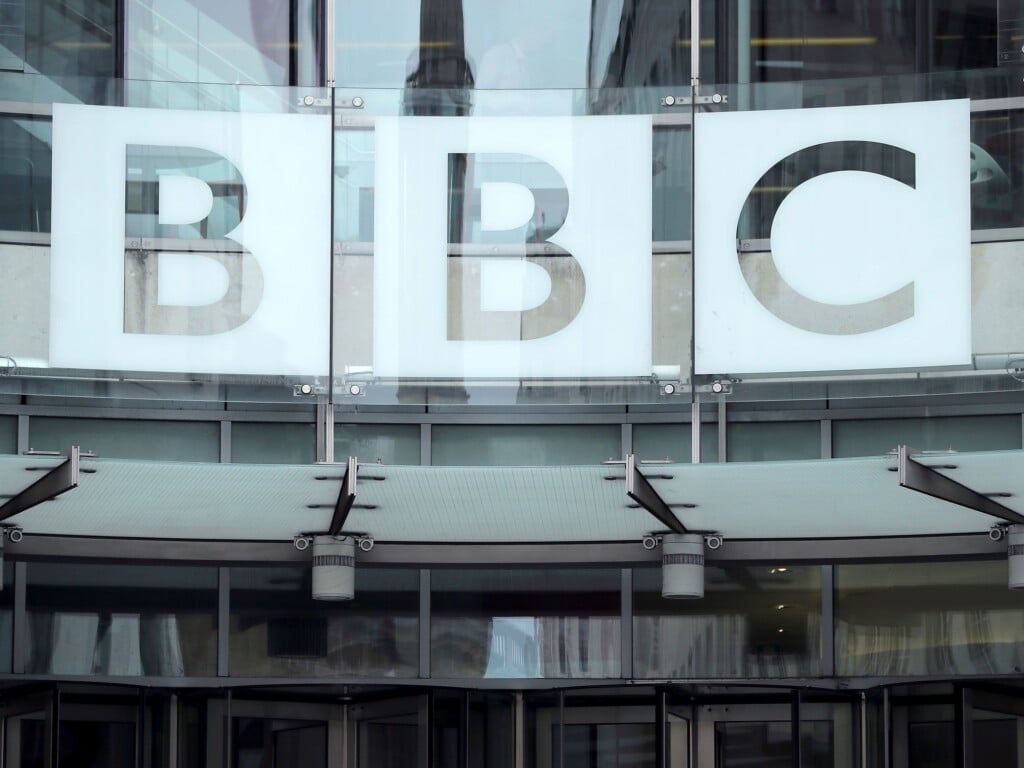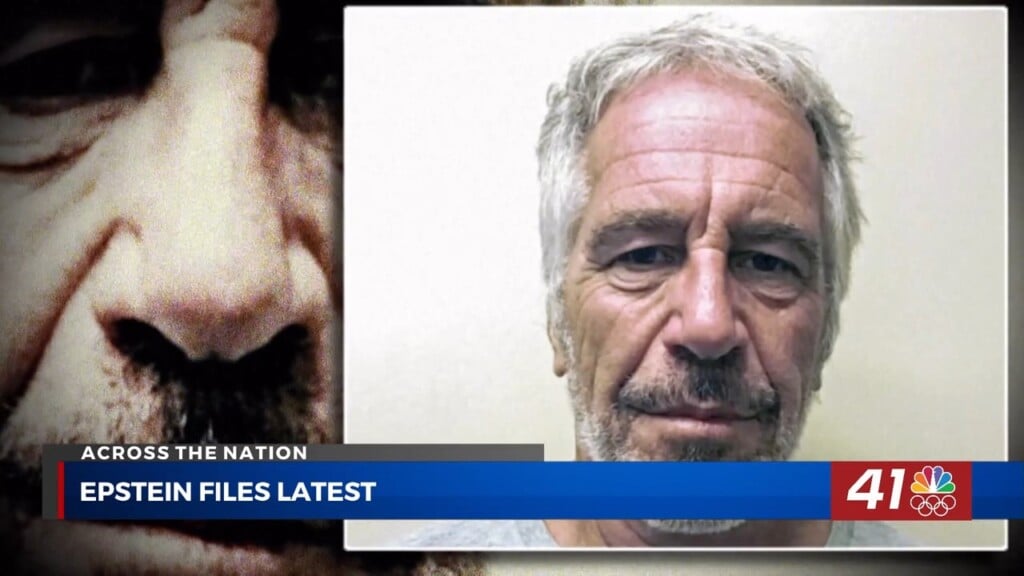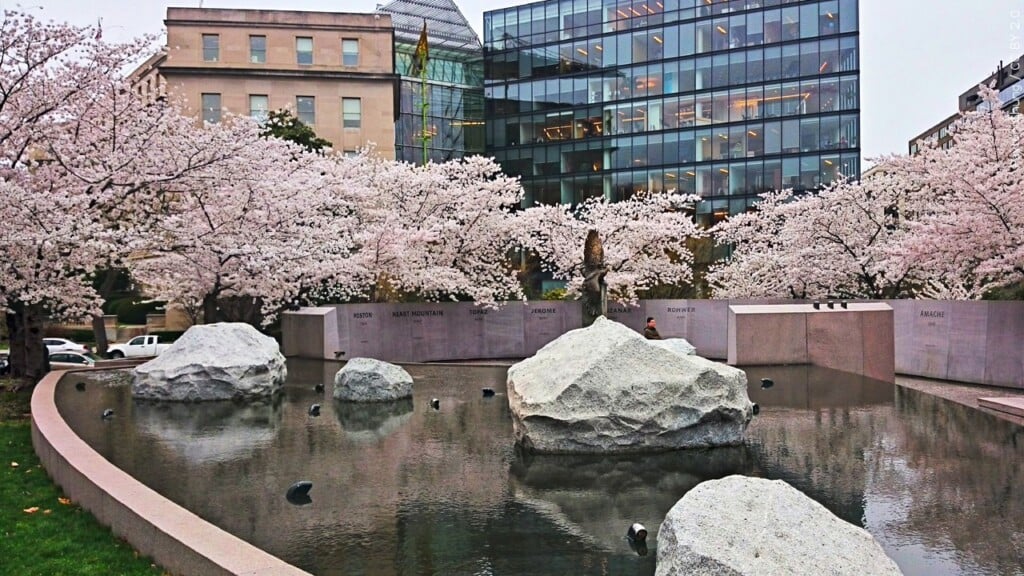BBC faces leadership crisis after news bosses quit over Trump speech edit and bias claims
BBC executives resign amid criticism of “Panorama” program’s editing of Trump’s Jan. 6, 2021 remarks

LONDON (AP) – The BBC reported Monday that U.S. President Donald Trump has sent a letter threatening legal action over the way a speech he made was edited in a documentary aired by the British broadcaster.
Two of the BBC’s most senior executives resigned Sunday over accusations of bias in the “Panorama” documentary’s editing of a speech Trump made on Jan. 6, 2021, before a crowd of his supporters stormed the Capitol in Washington.
The program spliced together three quotes from two sections of the speech, delivered almost an hour apart, into what appeared to be one quote in which Trump urged supporters to march with him and “fight like hell.” Among the parts cut out was a section where Trump said he wanted supporters to demonstrate peacefully.
Asked about a letter from Trump threatening legal action over the program, the BBC said in a statement on Monday that “we will review the letter and respond directly in due course.” It did not provide further details.
THIS IS A BREAKING NEWS UPDATE. AP’s earlier story follows below.
LONDON (AP) – The BBC was facing a leadership crisis and mounting political pressure on Monday after its top executive and its head of news both quit over the editing of a speech by U.S. President Donald Trump.
The resignation of BBC Director-General Tim Davie and news chief Deborah Turness over accusations of bias was welcomed by Trump, who said the way his speech had been edited for a documentary was an attempt to “step on the scales of a Presidential Election.”
BBC chairman Samir Shah apologized Monday for the broadcaster’s “error of judgment” in editing the speech Trump delivered on Jan. 6, 2021, before a crowd of his supporters stormed the Capitol in Washington.
“We accept that the way the speech was edited did give the impression of a direct call for violent action,” Shah said in a letter to lawmakers.
Shah said the BBC has received communication from Trump and is “considering how to reply.” He would not say whether Trump was threatening to sue, but noted: ”He’s a litigious fellow, so we should be prepared for all outcomes.”
The hourlong documentary – titled “Trump: A Second Chance?” – was broadcast as part of the BBC’s “Panorama” series days before the 2024 U.S. presidential election. It spliced together three quotes from two sections of the 2021 speech, delivered almost an hour apart, into what appeared to be one quote in which Trump urged supporters to march with him and “fight like hell.” Among the parts cut out was a section where Trump said he wanted supporters to demonstrate peacefully.
In a resignation letter to staff, Davie said: “There have been some mistakes made and as director-general I have to take ultimate responsibility.”
Turness said the controversy was damaging the BBC, and she quit “because the buck stops with me.”
Turness defended the organization’s journalists against allegations of bias.
“Our journalists are hardworking people who strive for impartiality, and I will stand by their journalism,” she said Monday. “There is no institutional bias. Mistakes are made, but there’s no institutional bias.”
Trump posted a link to a Daily Telegraph story about the speech-editing on his Truth Social network, thanking the newspaper “for exposing these Corrupt ‘Journalists.’ These are very dishonest people who tried to step on the scales of a Presidential Election.” He called that “a terrible thing for Democracy!”
White House press secretary Karoline Leavitt reacted on X, posting a screen grab of an article headlined “Trump goes to war with ‘fake news’ BBC” beside another about Davie’s resignation, with the words “shot” and “chaser.”
Pressure on the broadcaster’s top executives has been growing since the right-leaning Daily Telegraph published parts of a dossier compiled by Michael Prescott, who had been hired to advise the BBC on standards and guidelines.
As well as the Trump edit, it criticized the BBC’s coverage of transgender issues and raised concerns of anti-Israel bias in the BBC’s Arabic service.
The “Panorama” episode showed an edited clip from the January 2021 speech in which Trump claimed the 2020 presidential election had been rigged. Trump is shown saying: “We’re going to walk down to the Capitol and I’ll be there with you. And we fight. We fight like hell.”
According to video and a transcript from Trump’s comments that day, he said: “I’ll be there with you, we’re going to walk down, we’re going to walk down. Anyone you want, but I think right here, we’re going to walk down to the Capitol, and we’re going to cheer on our brave senators and congressmen and women, and we’re probably not going to be cheering so much for some of them.
“Because you’ll never take back our country with weakness. You have to show strength and you have to be strong. We have come to demand that Congress do the right thing and only count the electors who have been lawfully slated, lawfully slated.
“I know that everyone here will soon be marching over to the Capitol building to peacefully and patriotically make your voices heard.”
Trump used the “fight like hell” phrase toward the end of the speech, but without referencing the Capitol.
“We fight like hell. And if you don’t fight like hell, you’re not going to have a country anymore,” Trump said.
In a letter to Parliament’s Culture, Media and Sport Committee, Shah said the purpose of editing Trump’s words had been “to convey the message of the speech” so that viewers could understand how it had been received by Trump’s supporters and what was happening on the ground.
He said the program had not attracted “significant audience feedback” when it first aired but had drawn more than 500 complaints since Prescott’s dossier was made public.
Shah acknowledged in a BBC interview that “it would have been better to have acted earlier. But we didn’t.”
The 103-year-old BBC faces greater scrutiny than other broadcasters – and criticism from its commercial rivals – because of its status as a national institution funded through an annual license fee of 174.50 pounds ($230) paid by all households who watch live TV or any BBC content.
The broadcaster is bound by the terms of its charter to be impartial, and critics are quick to point out when they think it has failed. It’s frequently a political football, with conservatives seeing a leftist slant in its news output and some liberals accusing it of having a conservative bias.
It has also been criticized from all angles over its coverage of the Israel-Hamas war in Gaza. In February, the BBC removed a documentary about Gaza from its streaming service after it emerged that the child narrator was the son of an official in the Hamas-led government.
Governments of both left and right have long been accused of meddling with the broadcaster, which is overseen by a board that includes both BBC nominees and government appointees.
Some defenders of the BBC allege that members of the board appointed under previous Conservative governments have been undermining the corporation from within.
Prime Minister Keir Starmer’s spokesman, Tom Wells, said the center-left Labour Party government supports “a strong, independent BBC” and doesn’t think the broadcaster is biased.
“But it is important that the BBC acts to maintain trust and corrects mistakes quickly when they occur,” he said.
(Copyright 2025 The Associated Press. All rights reserved. This material may not be published, broadcast, rewritten or redistributed without permission.)

